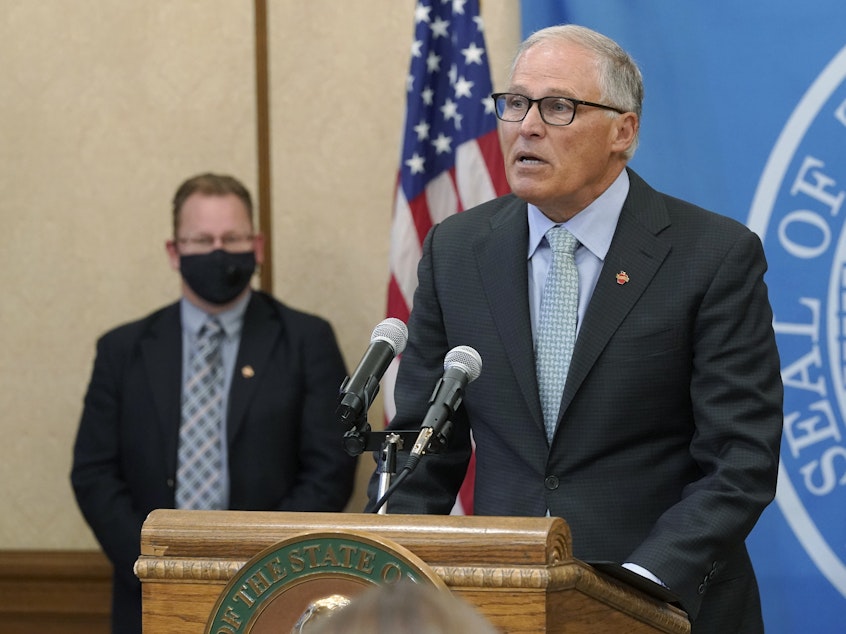Gov. Inslee signs new drug possession law after special legislative session

The Washington state Legislature approved a bipartisan compromise Tuesday to address drug possession and treatment during a one-day special session.
The new bill makes it a gross misdemeanor to use drugs in public or possess small amounts of drugs. The bill also creates new options and funds resources to divert people from the courts and into addiction treatment.
Washington Gov. Jay Inslee signed the bill into law shortly after lawmakers approved the legislation.
A group of legislators from all four caucuses struck a tentative new compromise Monday, that includes making drug use and knowing possession a gross misdemeanor, which is punishable by 180 days in jail, a $1,000 fine, or both.
It comes after the legislation — commonly referred to as the Blake Bill, or the Blake Fix — failed on the final day of the regular session. Democratic leadership believed they had the votes to pass the legislation after months of lengthy and emotional debate, but it was shot down as all Republicans and progressive Democrats in the House voted against it.
Sponsored
At the time, several Democrats criticized the legislation for failing to decriminalize drug use, something they said further stigmatizes people who are struggling with addiction. Republicans meanwhile, sought tougher legal penalties and outlined several specific issues with the proposed compromise bill that they said made it "unworkable."
Lawmakers were compelled to take on the issue because of a state Supreme Court ruling unexpectedly issued in 2021 that struck down the state's felony drug possession statute as unconstitutional, with the majority writing that it violated a person's right to due process.
A temporary law meant as a stopgap measure expires this summer. The measure that passed Tuesday will replace the stopgap. The new crimes and legal penalties included in the bill go into effect July 1.
As lawmakers were negotiating a permanent state-level solution, city, and county governments across Washington have started proposing and passing local ordinances of their own.
The special session could have lasted up to 30 days. But lawmakers wrapped up their work much sooner because they had enough votes to pass the compromise Tuesday.




